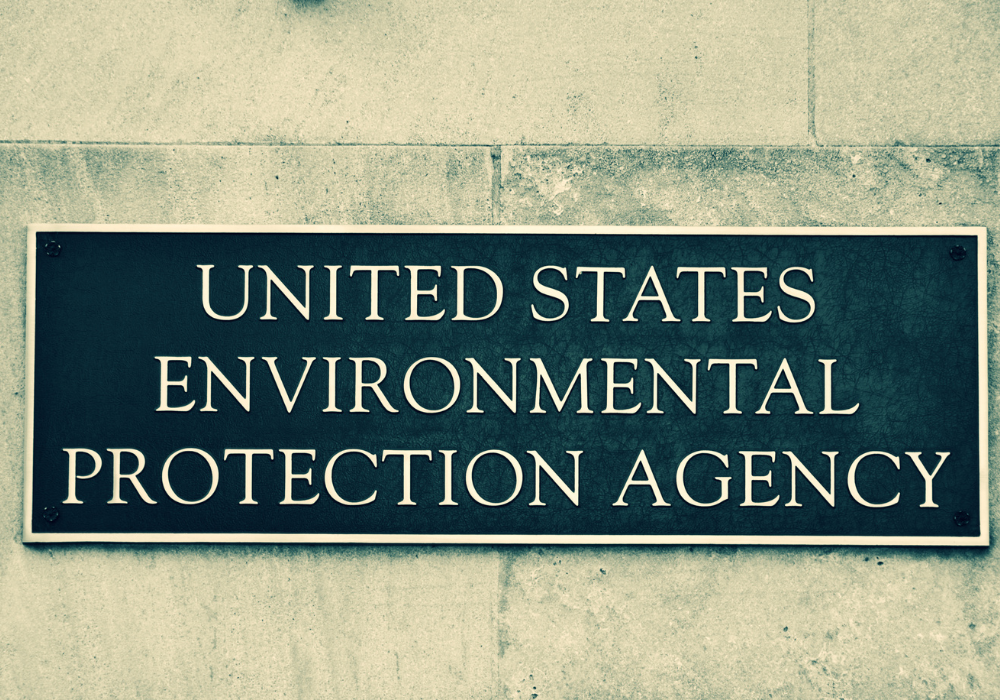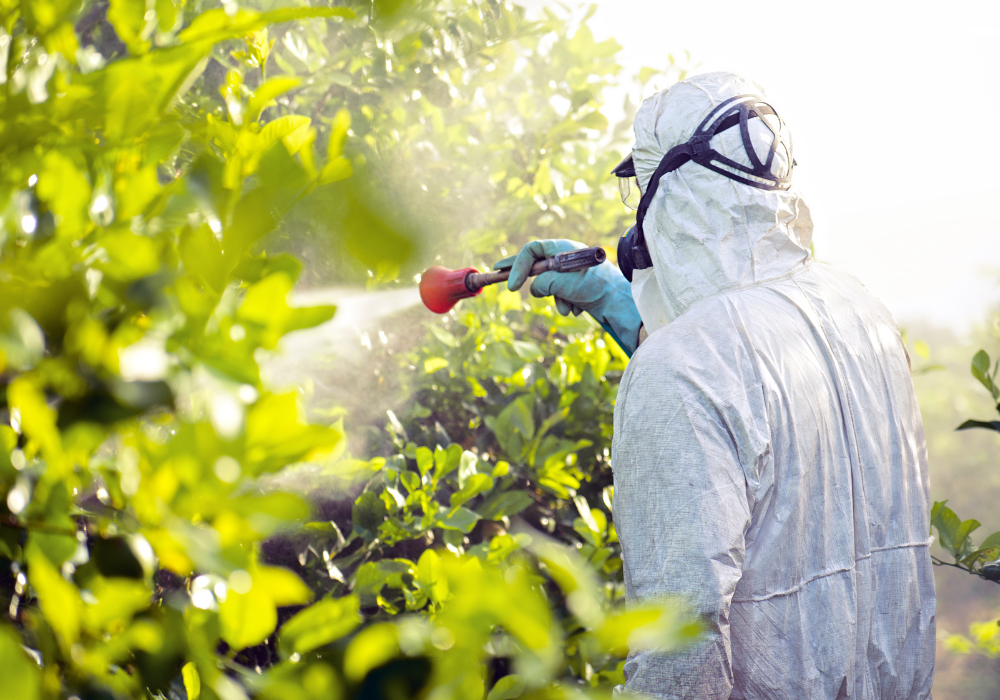Scientists warn a common weedkiller ingredient could harm vital organs and disrupt the gut microbiome.

A new study led by scientists at Nanjing University in China has raised serious concerns about diquat, a weedkiller ingredient now widely used across the U.S. Researchers found that even at low levels, the chemical may damage organs and disrupt gut bacteria, two critical systems for long-term health.
Experts warn that diquat is following a troubling pattern in U.S. agriculture, where one controversial chemical is often swapped for another without enough research on safety. While the Environmental Protection Agency has not yet launched a full review, advocates say the findings highlight an urgent need for tighter oversight.
1. A “Safe” Replacement That Isn’t So Safe

Diquat was promoted as a safer alternative to glyphosate, the controversial ingredient in Roundup. For years, it was marketed as a weedkiller that farmers and homeowners could trust. But new evidence suggests it may be more harmful than the chemical it replaced. Researchers say diquat can inflame tissue, disrupt cell membranes, and harm multiple systems in the body.
The bigger issue is the substitution itself. Instead of choosing genuinely safer alternatives, regulators allowed one potentially dangerous chemical to step in for another. This practice, sometimes called a “regrettable substitution,” keeps exposure risks high even when old products are banned or restricted.
2. The Gut Barrier Weakens Under Attack

One of the most alarming findings is diquat’s effect on the intestinal barrier. This lining normally acts as a shield, preventing toxins and harmful bacteria from entering the bloodstream. Scientists found that diquat reduces key proteins needed to keep the barrier strong.
When the gut lining breaks down, the entire immune system can be thrown off balance. People may experience more infections, inflammation, and digestive issues. Over time, this kind of disruption could contribute to chronic conditions, highlighting how a chemical used on crops might quietly affect the body in ways we rarely think about.
3. Inflammation Becomes a Whole-Body Problem

Inflammation is the body’s natural defense, but when it’s constant, it can be dangerous. Studies show that diquat exposure sparks inflammatory responses beyond the gut, traveling to other organs. This escalation raises the risk of widespread tissue damage.
When inflammation spreads, it can create a cascade of problems. Instead of affecting just digestion, it stresses the heart, lungs, liver, and kidneys. Chronic inflammation is already tied to diseases like diabetes and heart disease, so adding another chemical trigger could increase the public health burden.
4. The Kidney Connection Looks Dire

Animal studies suggest that diquat is especially damaging to kidney tissue. The chemical breaks down the membranes of kidney cells, leaving them unable to function properly. Once that process starts, it may be irreversible.
The kidneys filter waste and regulate fluids—jobs that are critical to survival. When they weaken, toxins build up in the body and blood pressure rises. If diquat accelerates kidney damage in humans, even at low doses, that could add enormous costs and suffering to an already rising epidemic of kidney disease.
5. The Liver Takes a Direct Hit

Just like the kidneys, the liver is a detox powerhouse. But scientists say diquat interferes with liver function by triggering harmful proteins that cause inflammation. Over time, this can strain the liver’s ability to process nutrients and filter harmful substances.
For people already exposed to alcohol, pollution, or fatty diets, this added chemical stress could make liver conditions worse. With liver disease on the rise in the U.S., the possibility that a common weedkiller is adding to the damage is particularly troubling for public health experts.
6. Lungs Aren’t Safe Either

Diquat doesn’t stay confined to the gut and liver. Researchers also observed inflammatory changes in lung tissue after exposure. This kind of damage could reduce breathing capacity and weaken defenses against respiratory illness.
People living near farmland where diquat is sprayed may be especially at risk, since airborne particles can be inhaled. Farmers and agricultural workers could also face higher exposure levels. If respiratory health is compromised, even mild allergies or seasonal illnesses could hit harder than expected.
7. The Threat of Multiple Organ Failure

One of the scariest possibilities tied to diquat is multiple organ dysfunction syndrome. This condition happens when several organs start failing together, often due to severe inflammation. It can quickly become life-threatening.
Although much of the current evidence comes from animal studies, researchers say the pattern is strong enough to raise concern for humans. If even moderate exposure can tip the body into this kind of crisis, it’s a red flag that shouldn’t be ignored. Health advocates are pressing for faster research before long-term damage becomes widespread.
8. Banned Abroad, Rising at Home

Many countries, including those in the European Union, have already banned diquat because of its risks. China has also restricted its use. Yet in the U.S., its popularity is growing, especially in vineyards, orchards, and other crop systems.
This means Americans may be increasingly exposed while other nations move in the opposite direction. The contrast raises questions about whether U.S. policy is protecting consumers or simply lagging behind global safety standards. For critics, this is yet another example of America falling behind on chemical safety.
9. Why U.S. Regulators Haven’t Stepped In

So why hasn’t the EPA acted? Advocates say pesticide laws in the U.S. make it difficult to ban or even review chemicals quickly. Agencies often require years of evidence before taking action, and industry groups fight restrictions in court.
As a result, chemicals banned elsewhere often remain in use here. Advocates argue that this slow system leaves Americans exposed to risks that regulators in other countries have already decided are unacceptable. Until rules change, dangerous substitutions may keep entering the market unchecked.
10. Evidence of Neurological Risks Emerges

Beyond organ damage, diquat may also affect the brain. Some studies suggest links between similar herbicides and conditions like Parkinson’s disease. Diquat’s ability to disrupt cellular signaling makes researchers worry it could play a role in neurodegenerative disorders.
If these findings are confirmed in humans, it would mean the risks aren’t just physical but neurological, affecting memory, coordination, and quality of life. Agricultural workers and communities near treated fields would be especially vulnerable because of their higher levels of exposure.
11. The Pattern of Regrettable Substitutions

Experts call diquat’s rise a “regrettable substitution.” That means glyphosate was swapped out for something equally, or even more, harmful. This pattern repeats across industries, from pesticides to plastics, where one toxic compound is replaced by another without enough testing.
Consumers often assume new products are safer when in reality they may carry similar or worse risks. Breaking this cycle requires regulators to demand proof of safety before a new chemical is widely adopted, not years after it’s already in the marketplace.
12. What Stronger Policy Could Achieve

If U.S. regulators took action now, diquat could follow the same path it has abroad, where bans or strict limits already exist. Removing it from circulation could prevent thousands of people from long-term exposure.
Policies requiring more transparent labeling, stronger testing, and investment in genuinely safe alternatives would give consumers real protection. For now, the science suggests diquat is not the safe substitute it was once thought to be—and until action is taken, exposure risks will continue to rise.